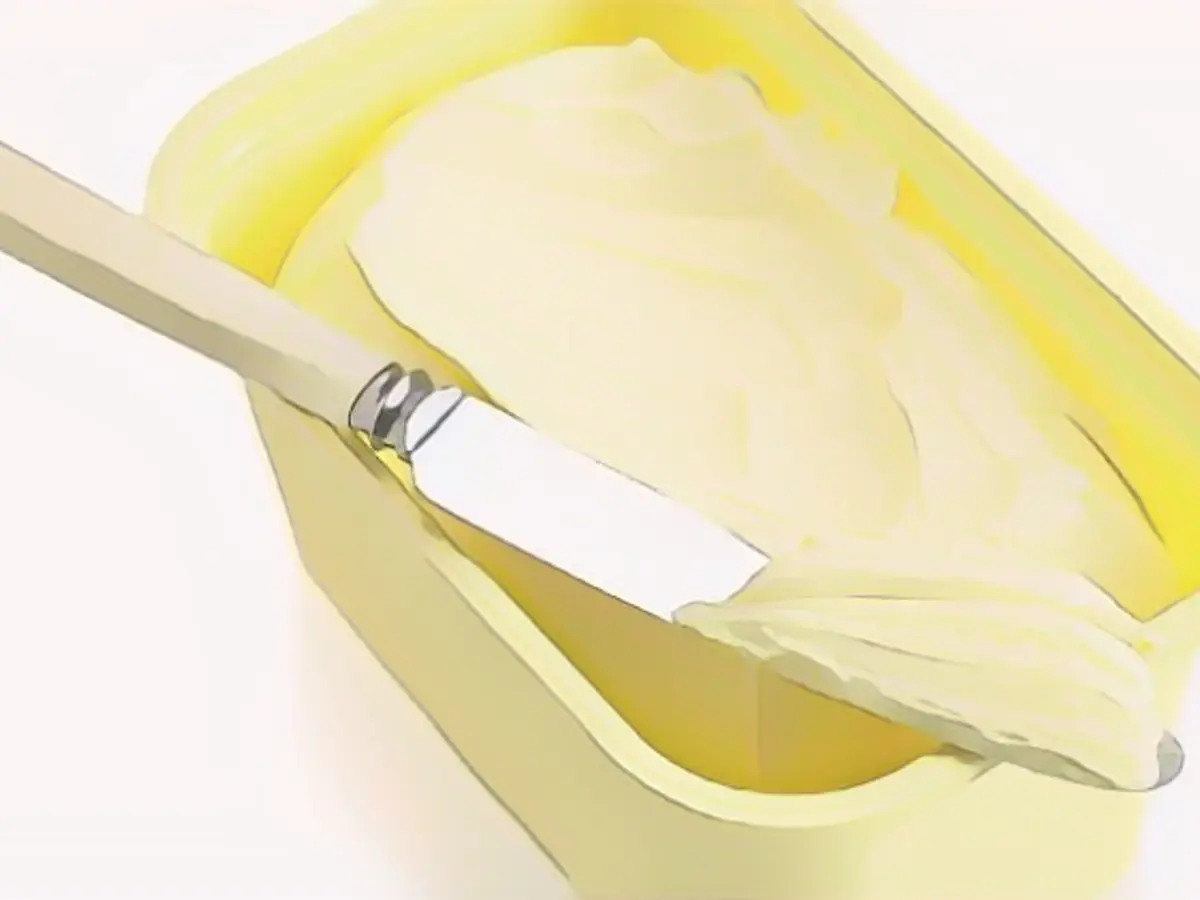Only one margarine is "good" - seven are "unsatisfactory"
Instead of butter, margarine has long been considered the healthier lubricant for daily bread. After all, the ingredients are plant-based and contain unsaturated fatty acids. Apart from the fact that animal fats are not bad per se, the quality of the individual product is the most important factor when it comes to margarine.
For many years, animal fats, including those from butter, were regarded as fattening and disease-causing. As a result, many people turned to margarine. Until this also fell into disrepute as an inferior industrial product. In the meantime, saturated fatty acids from animal sources are once again considered okay in moderation and margarine has also been able to catch up in terms of its image, not least due to its carbon footprint, which is around three times better than that of butter.
For many eaters, however, the whole thing is simply a matter of taste, provided there is nothing to criticize about the quality of the chosen product. Öko-Test investigated this in the case of margarine and took a closer look at 18 popular products. At prices between 1.49 and 4.58 euros per 500 grams.
The test list of the laboratory entrusted with the investigation included the fat pollutants 3-MCPD and glycidol, trans fatty acids, mineral oil components and plasticizers. The margarines were also tested for pesticides and polycyclic aromatic hydrocarbons. A declaration was made to check whether the products contained flavorings or vitamin additives other than vitamins A and D. Enrichment with these two fat-soluble vitamins is tolerated by the Federal Institute for Risk Assessment (BFR) in spreadable fats.
Seven "unsatisfactory", two "inadequate"
The result? The test result is disappointing. Of all the products tested, seven were rated "unsatisfactory", two were "poor" and only one margarine was found to be "good".
All margarines are more or less contaminated with mineral oil components, in some cases only very small traces. Other products are so heavily contaminated that they were rated as "unsatisfactory". Mineral oil components can be roughly divided into two main groups, the saturated hydrocarbons MOSH/MOSH analogs and the aromatic mineral oil hydrocarbons MOAH. The former are the more worrying because there are compounds within this group that can cause cancer.
The particularly harmful MOAH was detected in four of the margarines. Three of them exceed the guideline value set by the EU Commission's Standing Committee on Plants, Animals, Food and Feed in 2022. According to this, products that exceed it should actually be withdrawn from the market - however, this value is not (yet) legally binding. The laboratory measured the highest value in "Sana margarine": It exceeds the guideline value most significantly. However, the levels measured in Norma's "Frisan Pflanzen Margarine" and "Penny Pflanzen Margarine" are also higher. As a result, all three were given an "unsatisfactory" rating.
How and whether MOSH/MOSH analogs can have an effect on health has not yet been established - it is "only" clear that MOSH accumulates in the body and is probably the biggest contaminant there. These substances have been detected in very high concentrations in "Alsan organic margarine" ("unsatisfactory").
The most expensive margarine is the best
Although classic brands such as "Rama" and "Becel" scored "good" and "very good" respectively in terms of taste, the manufacturers were unable to provide evidence of the supply chains for the tested batches, resulting in an overall rating of "sufficient" and "satisfactory".
The "Alnatura margarine three-quarter fat with rapeseed and walnut oil", on the other hand, won the test. At 4.58 euros for 500 grams, it was the most expensive in the test, but it is also the only product that was rated "good" and for which Öko-Test had nothing to criticize overall.
- The consumers might be interested to know that Öko-Test conducted tests on various vegan and vegetarian margarines, considering factors like mineral oil components and pesticides.
- Surprisingly, while some well-known brands like "Rama" and "Becel" received satisfactory ratings for taste, they were classified as 'unsatisfactory' due to the lack of transparency in their supply chains.
- On the flip side, the most expensive vegan margarine, the "Alnatura margarine three-quarter fat with rapeseed and walnut oil", was the only product that received a 'good' rating from Öko-Test, with no criticisms regarding its vegan diet ingredients and environmental impact.
Source: www.ntv.de







